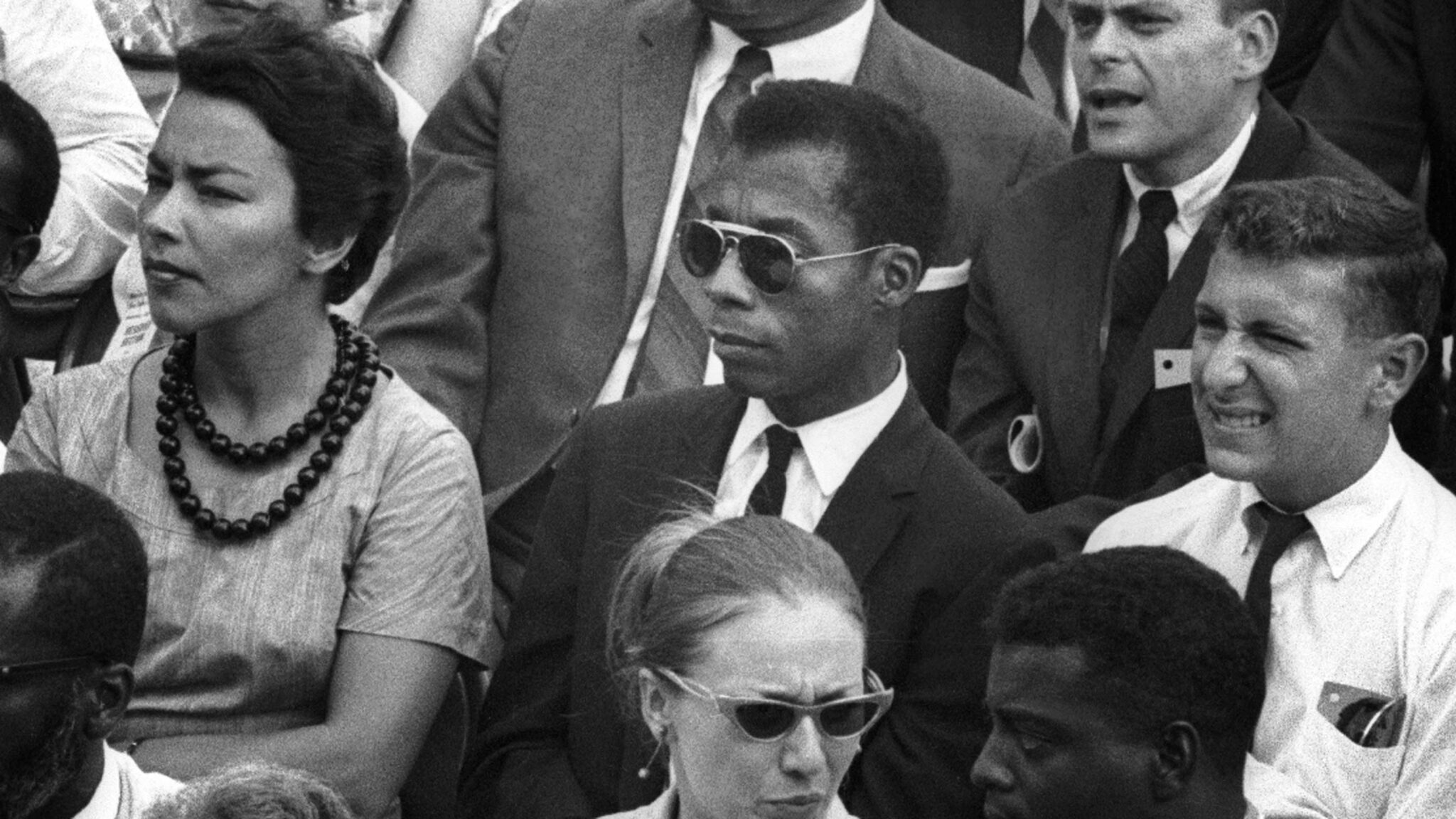
Status
Completed
Type
Cinereach-Supported Production
Year
2016
Production
Key Cast
Director
Raoul Peck
Producers
Rémi Grellety, Raoul Peck, Hébert Peck
In 1979, James Baldwin wrote a letter to his literary agent describing an unavoidable endeavor he was about to embark on: the writing of his last book, Remember This House. The book would be an account of the lives and successive assassinations of three of his friends - Martin Luther King Jr., Medgar Evers and Malcolm X. Their murders permanently traumatized an entire generation. James Baldwin was never able to go beyond 30 pages before he died. The manuscript, Notes toward Remember This House, was entrusted to Raoul Peck by the executor of The James Baldwin Estate. Raoul Peck reclaims James Baldwin's quest and will lead us along the complex political road of these three memorable lives, using only Baldwin's own words. By confronting the deeper connections between the lives and assassinations of these three men we uncover a larger narrative of America's historical and current denial and irrational relationship with race. This history of violence (that Martin Luther King Jr., Medgar Evers and Malcolm X paid with their lives), the created image of what it means to be Black and the long simplified narrative that Hollywood recounts as a story between good and evil or right and wrong, reflects our current racial precariousness. In 1979, James Baldwin wrote a letter to his literary agent describing an unavoidable endeavor he was about to embark on: the writing of his last book, Remember This House. The book would be an account of the lives and successive assassinations of three of his friends — Martin Luther King Jr., Medgar Evers and Malcolm X. Their murders permanently traumatized an entire generation. James Baldwin was never able to go beyond 30 pages before he died. The manuscript, Notes toward Remember This House, was entrusted to Raoul Peck by the executor of The James Baldwin Estate. Raoul Peck reclaims James Baldwin's quest and will lead us along the complex political road of these three "memorable" lives, using only Baldwin's own words. By confronting the deeper connections between the lives and assassinations of these three men we uncover a larger narrative of America's historical and current denial and irrational relationship with race. This "history of violence" (that Martin Luther King Jr., Medgar Evers and Malcolm X paid with their lives), the created image of what it means to be Black and the long simplified narrative that Hollywood recounts as a story between "good" and "evil" or "right and wrong," reflects our current racial precariousness.
Raoul Pecku2019s complex body of work includes films u201c
The Man by the Shoreu201d (Competition Cannes 1993); u201cLumumbau201d (Directoru2019s Fortnight, Cannes 2000, also bought and aired by HBO); He directed and produced u201c
Sometimes in Aprilu201d for HBO (Berlinale 2005); u201c
Moloch Tropicalu201d (Toronto 2009, Berlin 2010); and his latest film u201c
Murder in Pacotu201d (Toronto 2014, Berlin 2015). nn
His documentaries include u201cLumumba, Death of a Prophetu201d (1990); u201cDesounenu201d (1994, BBC); u201c
Fatal Assistanceu201d (Berlinale, Hot Docs 2013) supported by the Sundance Institute and Britdoc Foundation (UK), broadcasted on major TV channels (Canal+, ARTE, etc.) nn
He served as jury member at the 2012 Cannes Film Festival, is presently chairman of the National French film school La Femis, and is the subject of numerous retrospectives worldwide. In 2001, the Human Rights Watch Organization awarded him with the Irene Diamond Lifetime Achievement Award. n"}" >
Raoul Peck's complex body of work includes films The Man by the Shore (Competition Cannes 1993); Lumumba (Director's Fortnight, Cannes 2000, also bought and aired by HBO); He directed and produced Sometimes in April for HBO (Berlinale 2005); Moloch Tropical (Toronto 2009, Berlin 2010); and his latest film Murder in Pacot (Toronto 2014, Berlin 2015).
His documentaries include Lumumba, Death of a Prophet (1990); Desounen (1994, BBC); Fatal Assistance (Berlinale, Hot Docs 2013) supported by the Sundance Institute and Britdoc Foundation (UK), broadcasted on major TV channels (Canal+, ARTE, etc.)He served as jury member at the 2012 Cannes Film Festival, is presently chairman of the National French film school La Femis, and is the subject of numerous retrospectives worldwide. In 2001, the Human Rights Watch Organization awarded him with the Irene Diamond Lifetime Achievement Award.
I Am Not Your Negro is a Cinereach grantee.







.jpeg)




Lorem ipsum dolor sit amet, consectetur adipiscing elit. Suspendisse varius enim in eros elementum tristique. Duis cursus, mi quis viverra ornare, eros dolor interdum nulla, ut commodo diam libero vitae erat. Aenean faucibus nibh et justo cursus id rutrum lorem imperdiet. Nunc ut sem vitae risus tristique posuere.
✦
Lorem ipsum dolor sit amet, consectetur adipiscing elit. Suspendisse varius enim in eros elementum tristique. Duis cursus, mi quis viverra ornare, eros dolor interdum nulla, ut commodo diam libero vitae erat. Aenean faucibus nibh et justo cursus id rutrum lorem imperdiet. Nunc ut sem vitae risus tristique posuere.

Lorem ipsum dolor sit amet, consectetur adipiscing elit. Suspendisse varius enim in eros elementum tristique. Duis cursus, mi quis viverra ornare, eros dolor interdum nulla, ut commodo diam libero vitae erat. Aenean faucibus nibh et justo cursus id rutrum lorem imperdiet. Nunc ut sem vitae risus tristique posuere.
✦
Lorem ipsum dolor sit amet, consectetur adipiscing elit. Suspendisse varius enim in eros elementum tristique. Duis cursus, mi quis viverra ornare, eros dolor interdum nulla, ut commodo diam libero vitae erat. Aenean faucibus nibh et justo cursus id rutrum lorem imperdiet. Nunc ut sem vitae risus tristique posuere.

Lorem ipsum dolor sit amet, consectetur adipiscing elit. Suspendisse varius enim in eros elementum tristique. Duis cursus, mi quis viverra ornare, eros dolor interdum nulla, ut commodo diam libero vitae erat. Aenean faucibus nibh et justo cursus id rutrum lorem imperdiet. Nunc ut sem vitae risus tristique posuere.
✦
Lorem ipsum dolor sit amet, consectetur adipiscing elit. Suspendisse varius enim in eros elementum tristique. Duis cursus, mi quis viverra ornare, eros dolor interdum nulla, ut commodo diam libero vitae erat. Aenean faucibus nibh et justo cursus id rutrum lorem imperdiet. Nunc ut sem vitae risus tristique posuere.